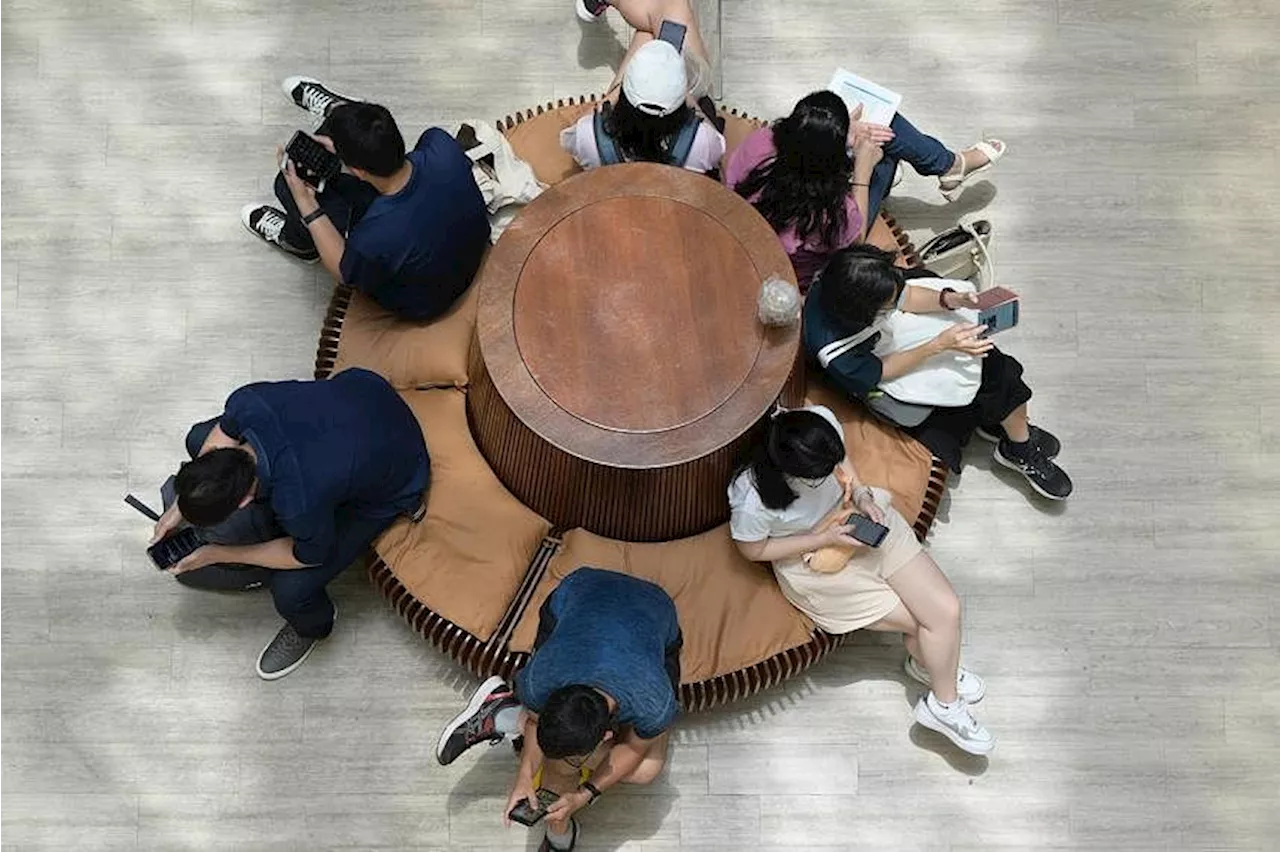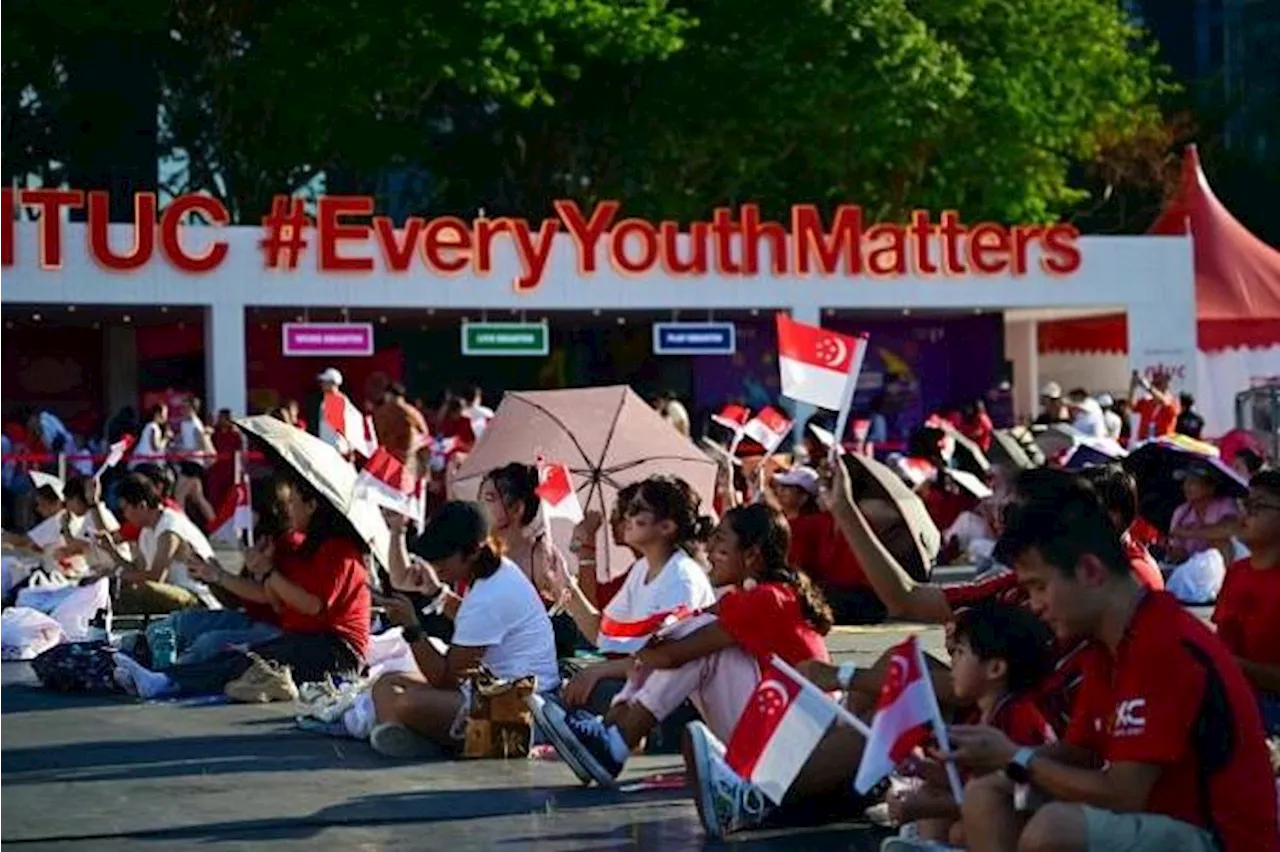As with most horror stories, this one unfolds at night. On the eve of examinations or essay deadlines, many students often guzzle coffee or cans of energy drinks to stave off sleep and power through their studies. Some even concoct a more potent brew by mixing black coffee with energy drinks that contain caffeine for an extra jolt of alertness....
Some young adults believe mixing energy drinks with alcohol helps them feel "high" for a longer period without passing out.As with most horror stories, this one unfolds at night.
The cost of this desperate bid to stay awake is steep. As the artificial surge of energy wanes, students find themselves transformed into literal zombies, shambling through the following days in a sleep-deprived haze. Yet, this is a price they are willing to pay for academic success. Media practitioner Aidan Razali, 24, observes that his peers and other young adults want to avoid getting drunk too quickly and embarrassing themselves in front of friends. They believe mixing energy drinks with alcohol helps them stay in that sweet spot of feeling "high" for a longer period without passing out.
These combos can also cause sleep problems and digestive discomfort such as nausea, stomach pain and dehydration due to caffeine's diuretic effect, Wong says. Enjoying coffee and tea has always been a pleasurable ritual in Singapore. In the past year alone, speciality coffee chains from China, Indonesia, Canada and Taiwan have opened shops in Singapore, joining an already bustling landscape of independent cafes and more than 60 bubble tea brands.
Yulanda Heng, principal dietitian at KK Women's and Children's Hospital , says: "Caffeine can be found hidden in many common foods and drinks, including chocolates and vitamin water. It is a stimulant that increases activity in the brain and nervous system. In appropriate doses, it can make one feel more alert and focused."
But do Singaporeans, especially Gen Zs, know how much caffeine is in their favourite beverages? Do they care about the impact on their bodies? "I took a big metal cup to the canteen auntie and asked her to fill it with coffee. I saw her pour at least three to four cups into my metal cup, and I went back to the auntie again later, making it at least six cups in total.
Undergraduate Claudia Koivuaho, 20, says that while one can easily see and measure sugar, caffeine is a more elusive concept. She adds that while sugar is known to significantly increase the risk of pre-diabetes, the long-term effects of caffeine are less apparent. Kaur started drinking coffee at 14 when her school canteen began selling bottled iced milk tea, which she disliked. "However, I wanted to feel included since everyone was drinking it," she says. "So, when bottled iced coffee became available, I jumped right in."
"It became a ritual for us before heading home. Even now, after we have both graduated, I still see bubble tea as a very social activity. It is a wonderful way to spend time with each other." There are other ways to stay alert, she adds. These include regular exercise to increase energy levels, staying hydrated to prevent fatigue and taking power naps if necessary.Habits can be hard to break. None of the Gen Zs interviewed say they would change the way they consume caffeine, even if a system similar to Nutri-Grade was imposed.
Singapore Latest News, Singapore Headlines
Similar News:You can also read news stories similar to this one that we have collected from other news sources.
 About one in two S’porean youth has problematic smartphone use: IMH studyRespondents were asked if they feel impatient or fretful without their devices, for instance.
About one in two S’porean youth has problematic smartphone use: IMH studyRespondents were asked if they feel impatient or fretful without their devices, for instance.
Read more »
 China’s youth seek work in sectors traditionally considered as blue-collar as mindsets shiftAccording to official data, China’s youth unemployment was at 14.7 per cent in April, a drop from an unprecedented 21.3 per cent in the middle of last year before officials adjusted calculation methods by excluding students.
China’s youth seek work in sectors traditionally considered as blue-collar as mindsets shiftAccording to official data, China’s youth unemployment was at 14.7 per cent in April, a drop from an unprecedented 21.3 per cent in the middle of last year before officials adjusted calculation methods by excluding students.
Read more »
 Band contest offers youth chance to perform at Singapore Grand Prix, Timbre+ One NorthYouth Music Matters is open to musicians aged 15 to 25 who reside in Singapore.
Band contest offers youth chance to perform at Singapore Grand Prix, Timbre+ One NorthYouth Music Matters is open to musicians aged 15 to 25 who reside in Singapore.
Read more »
 NTUC commits $2.5m in grants to support youth education and welfareIts Starter Awards offer bond-free scholarships and leadership development programmes for those in IHLs.
NTUC commits $2.5m in grants to support youth education and welfareIts Starter Awards offer bond-free scholarships and leadership development programmes for those in IHLs.
Read more »
 ‘Generally, we’ve got things right’: SM Lee addresses issues like race at dialogue with youthIn Singapore, one can expect to be treated equally regardless of race, language and religion, he said.
‘Generally, we’ve got things right’: SM Lee addresses issues like race at dialogue with youthIn Singapore, one can expect to be treated equally regardless of race, language and religion, he said.
Read more »
 NTUC commits $2.5m in grants to support youth education, welfareThe youth in Singapore will receive a boost in educational support, with financial assistance and leadership development opportunities to help them excel in their studies and prepare for future careers. The National Trades Union Congress (NTUC) has committed $2.5 million in...
NTUC commits $2.5m in grants to support youth education, welfareThe youth in Singapore will receive a boost in educational support, with financial assistance and leadership development opportunities to help them excel in their studies and prepare for future careers. The National Trades Union Congress (NTUC) has committed $2.5 million in...
Read more »
